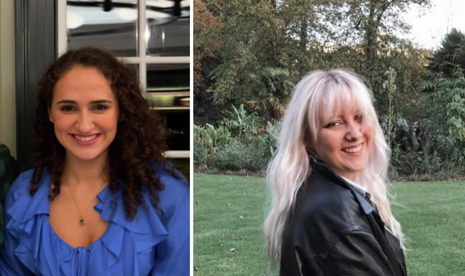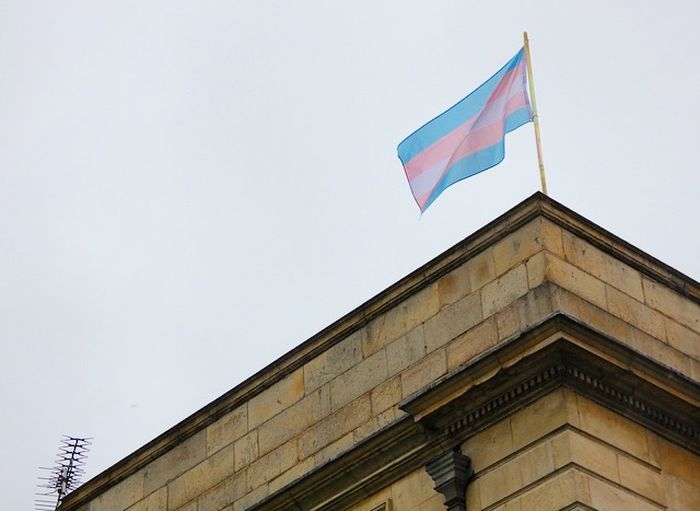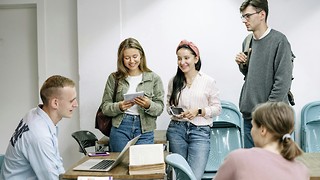Meet the Cambridge Period Project
Lydia Seed and Bella Cross discuss efforts to curb period poverty in Cambridge with Juliette Guéron-Gabrielle

Lydia Seed, a fifth year medic, started the Cambridge Period Project in January 2021. “A group of us were on the committee of the global health initiative that aims to improve global health by thinking global and acting local. We were on the subcommittee for sexual and reproductive health, so we were inspired to do something about sexual and reproductive health in Cambridge.”
“Cambridge is one of the most unequal cities in the UK, with shockingly high levels of homelessness. We started thinking about how the sexual and reproductive health of homeless women might be affected.”
Their first step was to collaborate with a charity set up by 16-year-old Bimini Love in Cornwall, Street Cramp. “Bimini Love raised money and produced period boxes with everything you need to deal with your period, to make it a bit more comfortable,” Lydia said. “We contacted her and organised a distribution of period boxes to homeless women in Cambridge.”
The second step was to survey existing provision for menstrual equity in Cambridge. “When we set up a committee for the Period Project, we started talking, and anecdotally we realised the support for periods varied tremendously [from] college to college. Since there were only six of us, we decided to survey every Cambridge college to get a more global picture. We sent it to women’s officers across colleges. We found that provision of condoms and pregnancy tests was pretty constant thanks to the SU central health scheme. But the provision of period products varied immensely.”
“Some colleges were great; some had wilfully low budgets of fifty pounds. One college stored period products in a locked cupboard, and you had to ask a male porter for the key to the cupboard.”
“This place was not built for women. No wonder schemes like this are not in place [...] it is important to tweak the barriers to make it a place welcoming to all – irrespective of gender identity”
“We wrote an open letter to criticise that. We had over a thousand signatures. In response, the University recommended to all uni buildings and departments that they provide free period products. Now, it’s up to us to chase them up and check they are doing that.”
They also surveyed the extent of period poverty in Cambridge, and were surprised by their findings: “We did a survey on 630 students who menstruate, and had responses from every JCR and MCR in the uni. We found that 51.6% find purchasing period products to be a financial burden, with 12.5% experiencing this persistently.”
Ultimately, the campaign-turned-society hopes for the extension of the SU sexual health program to include the provision of period products. “Our gold standard would be for the centralised SU project to be extended from the provision of condoms and pregnancy tests to also include the provision of period products. And also to make sure that departments are able to implement the recommendation. I don’t know how many departments have implemented it. I’m a medical student, so I know the medical department has not.”
I asked Lydia what keeps her motivated to lead the campaign. “Well … from studying medicine and coming at it from a global health point of view, my mind originally went to the health implications of period poverty: toxic shock syndrome, inflammatory pelvic disease which can lead to infertility, etc. The really long term consequences are terrible, but I think they are relatively rare for people experiencing period poverty to have.”
“What drew me to pursuing the project longer was looking at it from a social [and] political point of view – examining the social determinants of health – especially as a woman in Cambridge. This place was not built for women. No wonder schemes like this are not in place. As a modern woman studying in modern Cambridge, it is important to tweak the barriers to make it a place welcoming to all, irrespective of gender identity.”
Bella Cross, one of the committee members, has also been running a similar program. The Selwyn Period Project, an initiative of Selwyn FemSoc, intends to provide free period products in all of the College’s public restrooms. “The free period products get used quite a lot. They get used more than we thought they would. The bursar promised to increase the JCR’s budget so we can continue to expand the scheme without it eating away the budget of the JCR or the FemSoc.”
When I asked Lydia if their focus is only material, or if they hope to fight the wider stigmas attached with periods, she said that the latter is included in their founding charter. She added that “stumbling into the role of leading this campaign forced me to get a lot better about talking about periods. I have not always been the most open.”
“I started at home. I’m an only child and my dad can be a bit old-fashioned, so I started kind of forcing him to listen. Instead of saying ‘Oh, I have a headache, I feel a bit ill,’ I would say ‘It’s the first day of my period, and I’m so sore.’ He’s been so receptive.”
Bella said she thinks “the time has come for us to move in the direction of menstrual equity. I have a distinct memory of my mum asking me not to use too many pads, because they couldn’t afford to pay for that when I was growing up. That was normal for me. Same thing for all of my friends. I never realised that it was wrong, even if it never felt right either.”
“This project is just something very positive we can do,” she added.
To learn more about the Cambridge Period Campaign, you can follow them on Facebook. You can also submit a piece of art to their art competition.
 Features / Beyond the porters’ lodge: is life better outside college?24 February 2026
Features / Beyond the porters’ lodge: is life better outside college?24 February 2026 Theatre / Footlights Spring Revue? Don’t Mind if I Do!25 February 2026
Theatre / Footlights Spring Revue? Don’t Mind if I Do!25 February 2026 News / Cambridge academics sign open letter criticising research funding changes22 February 2026
News / Cambridge academics sign open letter criticising research funding changes22 February 2026 News / Student and union protesters hold ‘Trans Liberation Solidarity Rally’ 24 February 2026
News / Student and union protesters hold ‘Trans Liberation Solidarity Rally’ 24 February 2026 Fashion / The evolution of the academic gown24 February 2026
Fashion / The evolution of the academic gown24 February 2026










